Train Protection and Warning System (AWS / TPWS)
Train Protection and Warning System (AWS / TPWS)
The current Network Rail UK protection systems are TPWS and AWS. The functionality of both systems is combined in a single system, generally referred to as TPWS. TPWS comprises of OSS (Overspeed Sensor System) and TSS (Train Stop System).
The OSS system automatically applies the vehicles emergency brakes when the vehicle exceeds the posted speed over an active OSS transmitter. The TSS system automatically applies the vehicles emergency brakes when the vehicle passes an active TSS transmitter installed at stop signal. AWS gives train drivers an audible and visual indication of the status of the signal ahead. If the driver does not acknowledge the indication of a caution signal the AWS system automatically applies the vehicles emergency brakes.
Mors Smitt TPWS system is based around a TPWS Control Unit to which all other AWS and TPWS equipment is connected. For simplification however, the complete train borne TPWS system can be split into four distinct elements, these being the Control Unit, AWS Receiver, TPWS Antenna and Cab Controls and Indicators. Included Specific Transmission Module (STM) is aimed to manage the interface between existing national train protection systems and ETCS to provide continuous train operation on sections not covered by ETCS.
Mors Smitt have been working with Network Rail to ensure our TPWS is ready for the roll out of Isolated Speed Limited Authority (ISLA) and Radio Based Limited Supervision (RBLS).
Isolated Speed Limited Authority (ISLA) is a future TPWS development which will provide:
Mors Smitt have been working with Network Rail to ensure our TPWS is ready for the roll out of Isolated Speed Limited Authority (ISLA) and Radio Based Limited Supervision (RBLS).
Isolated Speed Limited Authority (ISLA) is a future TPWS development which will provide:
- Line speed supervision
- Temporary Speed Restriction (TSR) and Emergency Speed Restriction (ESR) remote deployment and supervision
- Possession boundary control/supervision
- Controlled/supervised moves through possessions
- User Worked Crossing safety enhancements
- Signal aspect supervision
- Continuous supervision benefits at significantly lower cost than ETCS
- Relatively quick and low-cost vehicle installation compared to ETCS
- Quicker rollout due to minimal driver training, as based on familiar TPWS control panel
Downloads:
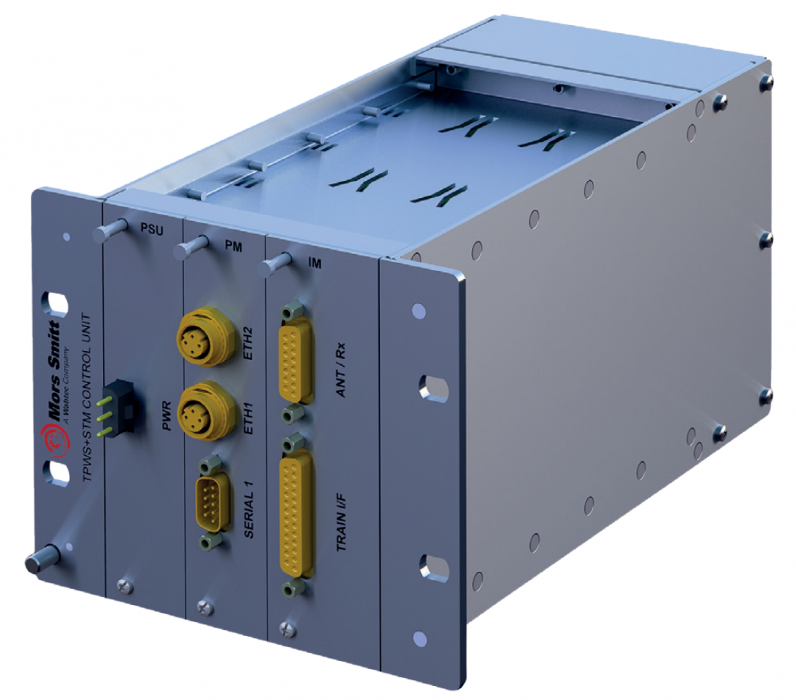
TPWS Control Unit
Combining service-proven TPWS with a new standardised ETCS interface
Bekijk details
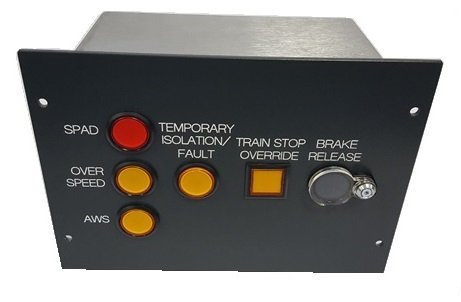
TPWS Driver Machine Interface (DMI)
All new vehicles entering service must now be fitted with an upgraded version of TPWS to GE/RT8030 Issue 4 and part of this upgrade is the addition of a DMI. The DMI is mounted in the driver's desk as required by location of primary controls rules.
Bekijk details
.jpg)
AWS Alarm and Indicator
Op de meeste voertuigen die in het Verenigd Koningkrijk actief zijn, worden de AWS-alarm- en indicatorfuncties gecombineerd in een enkele eenheid.
Bekijk details
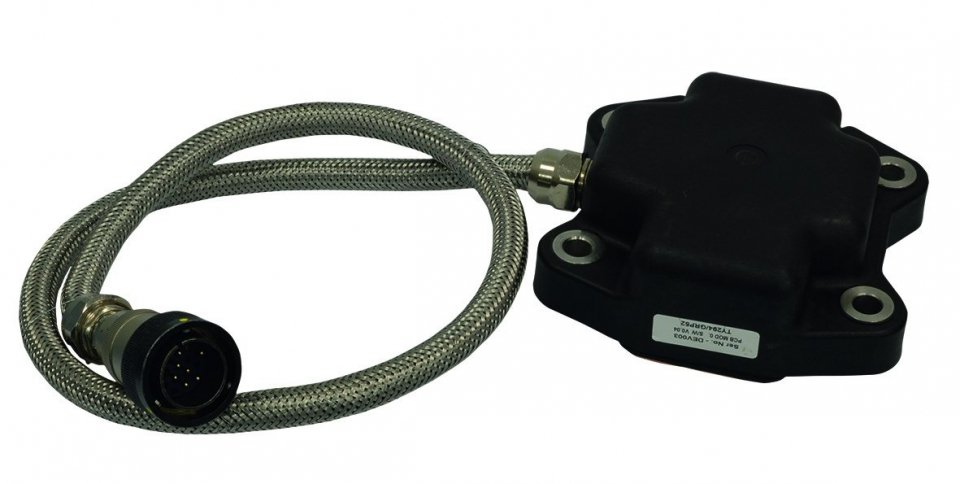
AWS Receiver
The AWS Receiver is mounted under the train, also ideally on the bogie, and senses the track mounted AWS magnets and transmits their polarity to the TPWS Control Unit.
Bekijk details
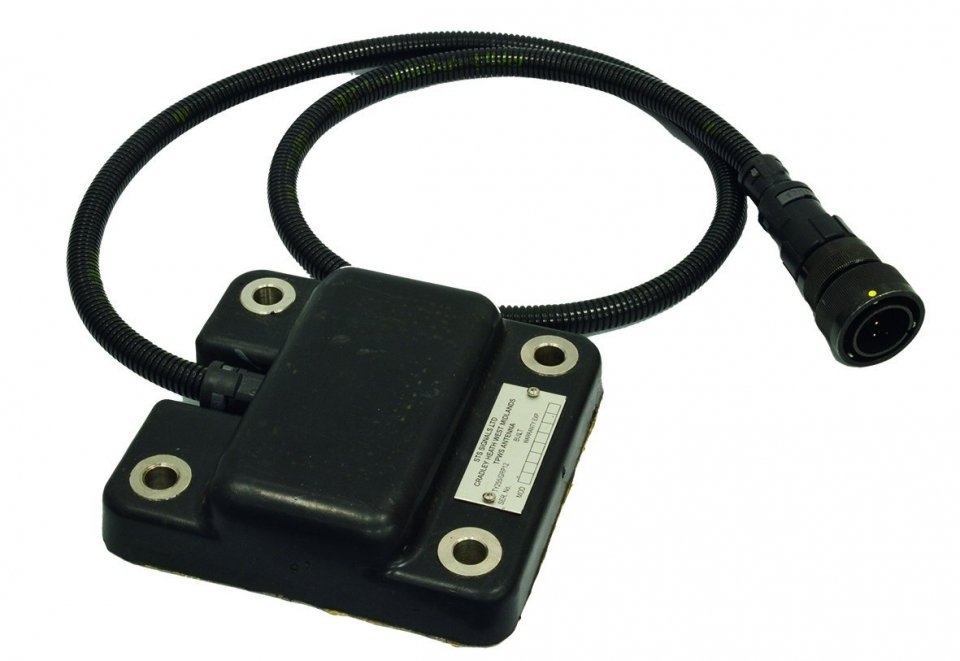
TPWS Antenna / Aerial
The TPWS Antenna is mounted under the train, ideally on the bogie, and senses the frequencies generated by the track mounted TPWS equipment and transmits them to the TPWS Control Unit.
Bekijk details
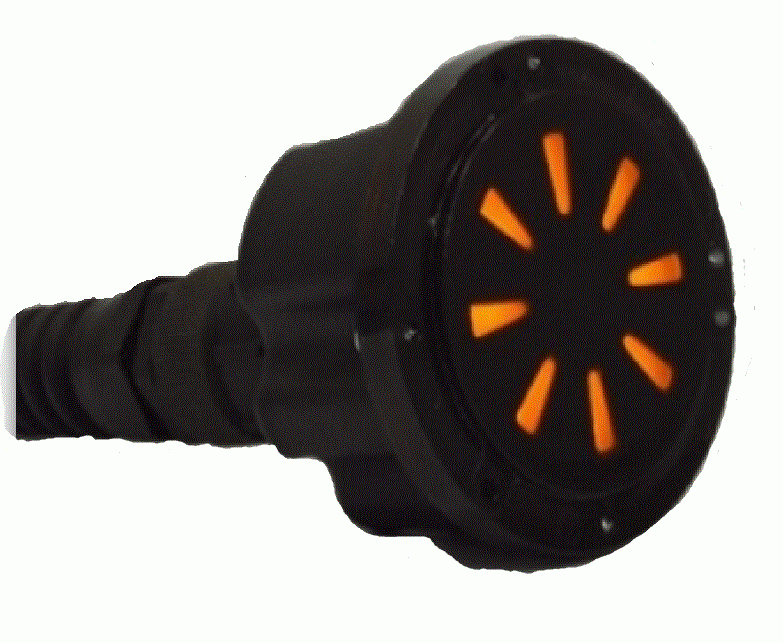
AWS Indicator / "Sunflower"
The AWS Indicator (or sunflower) is mounted in the cab in the drivers field of vision whilst looking at the track ahead. It shows the status of the last AWS signal received by the TPWS Control Unit.
Bekijk details
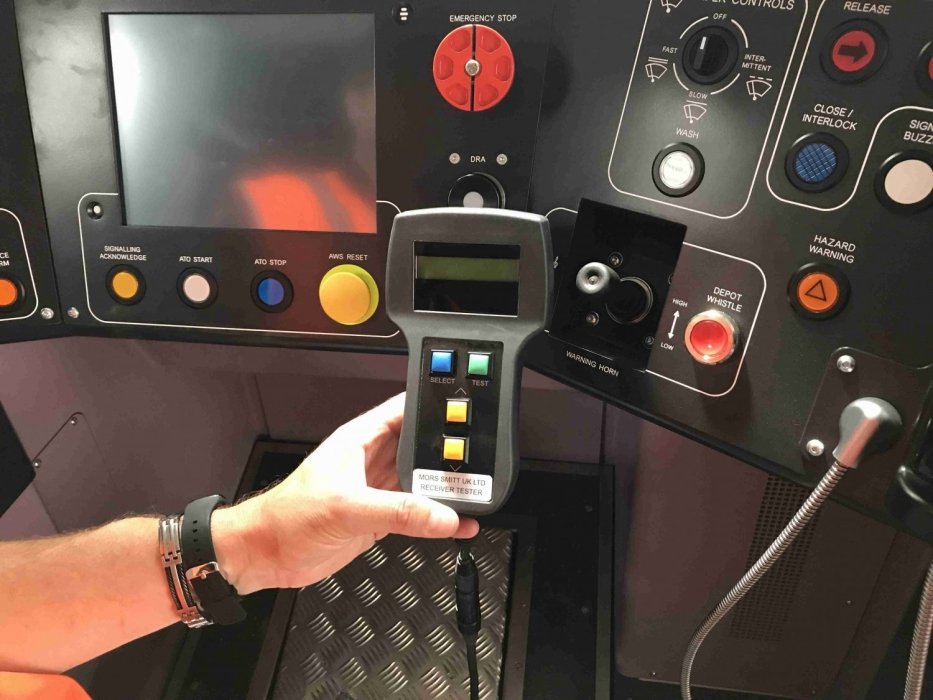
AWS and TPWS Test Equipment
- Mors Smitt can supply all necessary test equipment to ensure the vehicle interfaces correctly with the track equipment. This test equipment is used to ensure that the installation complies with the relevant standards throughout the life of the vehicle. First of class characterisation, commissioning and maintenance testing equipment.
Bekijk details
